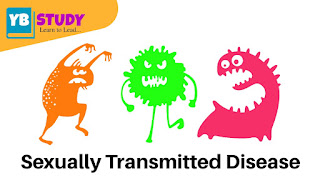STD Full Form : Sexually Transmitted Diseases | FAQs
STD Full Form: Sexually Transmitted Diseases | FAQs
STD Full Form :
The full form of STD is a sexually transmitted disease. Sometimes it is also known as sexually transmitted infections (STIs),
Sexually transmitted diseases (STDs) are infections that are transmitted through sexual contact. STDs are one of the most common infections in In India. Millions of people become infected with STDs every year. If you have sex with someone who has an STI – even if they don’t know it – you can have one too.
There are many different types of STDs and can cause many significant problems, especially if you do not know if you have one. For example, chlamydia and gonorrhea can make it difficult or impossible for a woman to have a child. Some types of human papillomavirus (HPV) cause genital warts. Other types of HPV may contribute to the cause of cervical cancer in women. HIV, the virus that causes AIDS, damages the cells of the immune system, the body’s immunity that fights infections and disease.
STIs are normally transmitted through sex – vaginal, oral, or anal. Some STDs can spread through any contact between the penis, vagina, mouth, or anus – even if there is no penetration. STDs can be transmitted through any type of sex: a man to a woman, a woman to a man, a man to another man, or a woman to another woman. Some STDs can also be transmitted by other means. For example, HIV and hepatitis B can also be transmitted through the exchange of injectable drugs or pharmaceutical needles. You cannot tell who has an STD.
It may be that you are not aware that you have an STD or that you are exposed to an STD because you feel fine or do not recognize the symptoms. But you can still pass STD to your partner, and your partner can give you STD.
What are the most common symptoms of STDs?
Sexually transmitted diseases (STDs) can cause physical symptoms (on the body) such as pimples, skin sores, itching, pain or burning sensation when urinating (urination), fever, or flu-like illness. But all these symptoms can be caused by other diseases which are not sexually transmitted diseases. Some STDs have no symptoms. So you can see how difficult it is to diagnose sexually transmitted diseases based on the symptoms you have.
Can I get a sexually transmitted disease and don’t know?
Yes. Many STDs may take weeks, months, or even years to show symptoms. Some people never develop symptoms, but even if they have no symptoms, an infected person can pass the disease on to someone else.
How do I know if my partner has STD?
The simple answer is that you will not know if your partner is infected or not. Remember, since some STDs do not have any symptoms, your partner may not even know they are infected.
Can I get a sexually transmitted disease from a public bathroom?
This is not very likely. Most sexually transmitted diseases (STDs) are only transmitted during sexual contact, either through skin-to-skin contact or by moving fluids out of the body, such as during vaginal, anal, or oral sex. Crabs or pubic lice can be transmitted through sexual contact, sleeping in an infected bed, sharing clothes, or possibly sitting on an infected toilet. However, the louse cannot live without the human body for more than 24 hours. So, getting infected with pubic lice or crabs from a toilet is possible, but not likely.
Can I get a sexually transmitted disease or HIV (HIV) if I get a tattoo or because they open a hole in my body (piercing)?
There is a risk of infection with HIV (HIV / AIDS) or another infection in the blood (such as hepatitis B or C) if the instruments used to make the hole to decorate your body or for tattooing have not been disinfected or sterilized between clients ( not cleaned). Instruments used to drill holes for body decoration or cut skin should no longer be used unless they are thoroughly cleaned before being used again.
Can I get a sexually transmitted disease from kissing?
This is possible, but not very common. If your partner’s mouth is infected with a sexually transmitted disease (STD), he or she can pass the infection on to you during the kiss. Lesions on the lips and mouth (called “cold sores” and “cold sores” in English) can be spread through a kiss if your partner is infected. Infections in the blood such as HIV or hepatitis B or C can only be transmitted through kissing if there is infected blood in the mouth. If your partner has an infection in their genital area (penis or vagina), kissing their mouth will not spread the infection.
Can I get a sexually transmitted disease from oral sex?
Yes. Skin contact occurs during oral sex and fluids can leak from the body. This is why it is important to use a barrier to protect yourself, e.g. B. Unlubricated latex condoms or latex tooth barriers to protect yourself.

